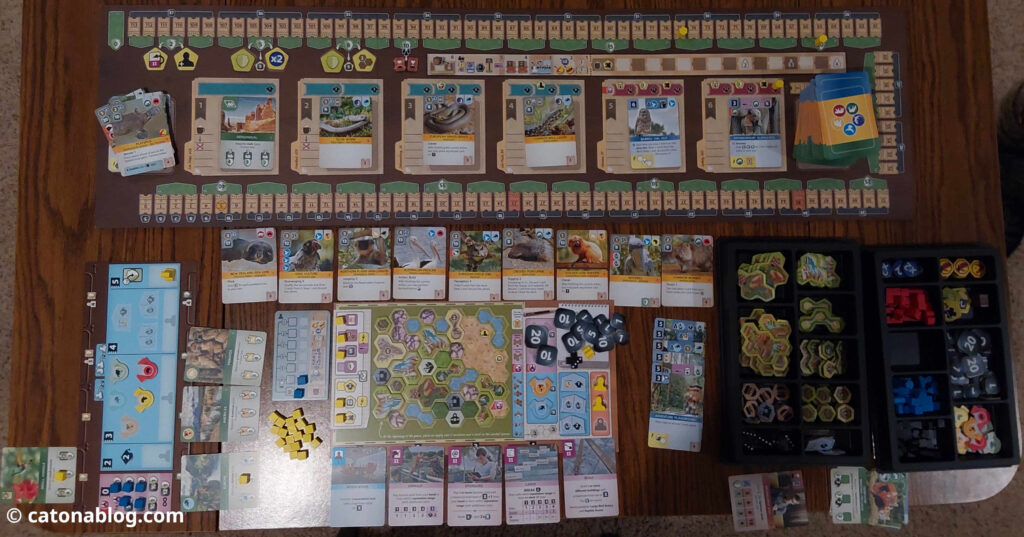
Nov 7th, 2025 Friday Cloudy
I am fond of strategy games. I like games that require some thinking, and rewards me for making the right decisions.
However, I am not a so-called “hard-core” gamer. I hesitate to commit a whole night’s time (strategy games tend to be a little long) to a complicated puzzle, where one misstep could completely wipe out your chance of winning. Not to mention that many games featuring deep strategy are war-themed, making them even less engaging (why would I spend my precious leisure time pretending to fight a war for whomever?).
Yet exception exists. I recently played Ark Nova, and it was a very enjoyable experience (if you can manage to set aside three to four hours).
In this game, you act as a new zoo director, with the goal of creating a zoo balancing public appeals and contribution to conservation of animals/habitats. You need to build enclosures, recruit animals (the most important source of appeals – after all, people do not come to zoos for empty spaces), sponsor nature-related programs/research activities, and establish associations with sisterly zoos and institutes around the world. Players take turns doing actions, and in the end, whoever owns the zoo with the highest appeal and conservation credits combined earns the glory.
Like my usual style, when I first started this game, I looked at my hand and quickly came up with a plan – I will focus on Africa, large animals, and research. If I could carry it out perfectly, I should have a fairly nice zoo, even if it is not the winner.
I soon realized that this would not work. The game has an amazingly large deck of cards (so many that we had to shuffle them in three piles), that the chance the exact cards that align well with my “strategy” somehow all came to me is minimal. Other than my starting cards, I did not see any other creatures from Africa for another hour. I could not just waste several turns waiting for what I want, while my competitor racks up points for his zoo.
The solo version, with literally limited turns (exactly 27), made this even more clear. Time is the most essential resource, and every turn not devoted to making an impact is an opportunity cost. So instead of trying to execute my original vision, I learn to ADAPT.
In this finished game, I worked with what cards/resources are available to me at that point, and made sure things were set up so I always had something meaningful to do in the next one or two turns. Fortunately, this is such a well-designed game that “all roads lead to Rome” – no magic path that gives anyone a definite advantage, and no “wrong” move (except for doing nothing). I strove to stay active and productive, and happily, I got the victory!
Then it occurred to me – perhaps this is a good life lesson, especially for an adult. Sometimes, inevitably, we are in situations where the ideal option is just not there (say, having a job you love that also pays well, in a decent location, with nice coworkers/managers and reasonable schedules), yet it may not be wise to reject all the other options simply to hope for the best – which may not come for many years, if at all.
Look around and figure out what you could do at this moment and start working on it. In the long run, when you look back, you might be pleasantly surprised to find how much valuable experience you have gained along the way.